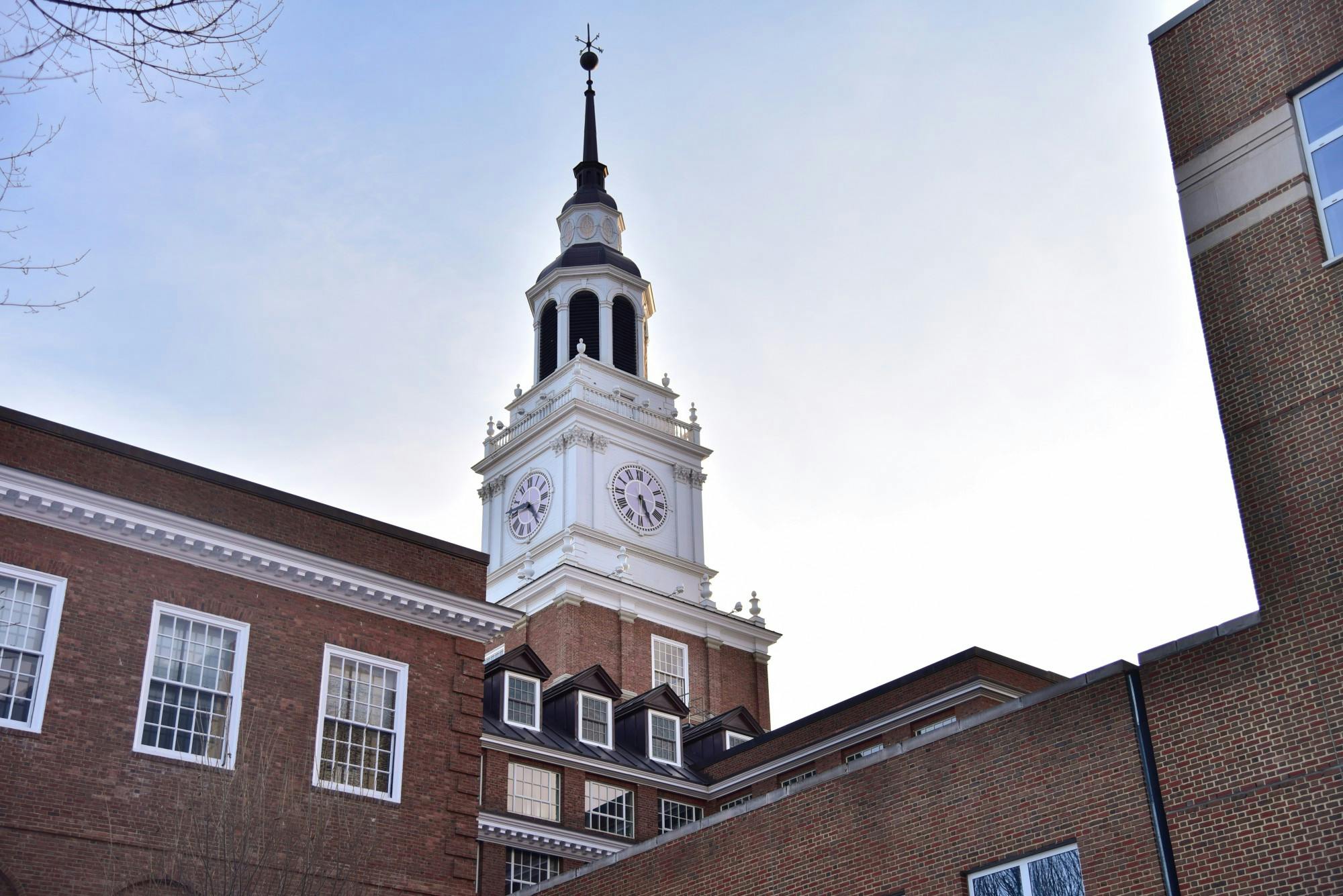On April 23, the Ivy League filed an amicus brief — a brief filed by external parties in “cases of significance or high interest,” according to the National Labor Relations Board website — to the NLRB. The brief sided with the Dartmouth Board of Trustees against the unionization of the College’s men’s basketball team.
In February, NLRB regional director Laura Sacks ruled that members of the Dartmouth men’s basketball team are university employees, according to past reporting by The Dartmouth.
In its amicus brief, the Ivy League wrote that Sacks’s ruling is “directly at odds with the fundamental principles to which all of the Ivy League’s member institutions adhere.”
“The Ivy League is unique among Division 1 intercollegiate athletic conferences, as it was founded upon the principles that the pursuit of academic excellence is paramount and that competition in sports must be kept in harmony with the essential educational purposes of each member institution,” the brief stated.
To this end, Ivy League student-athletes are “prohibited” from receiving athletic scholarships and may only receive need-based scholarships “on the same basis as any other student at the institution,” according to the brief. The brief also stated that student athletes are evaluated “under the same rigorous academic admission standards applicable to all other applicants for admission.”
In her decision, Sacks argued that the team is currently compensated through uniforms, equipment, transportation, meals and an “early-read” of players’ financial aid during the admissions process. She wrote in the decision that the College also controls players’ work through its team and class schedules, while the team benefits Dartmouth in a multitude of ways — such as encouraging alumni engagement, donations and promotions.
In an interview with The Dartmouth on April 3, College President Sian Leah Beilock said the College would “challenge” Sacks’s decision.
“We have been very clear that we don’t believe that men’s basketball players are employees and that we do have productive relationships with unions, but we feel very strongly about Ivy League athletics and students as academics first and athletes second,” Beilock said.
The College declined to bargain with the men’s basketball team’s union on March 18, according to past reporting by The Dartmouth.
Basketball team member Connor Christensen ’25 said he believes the Ivy League’s support of the College’s position is a “good thing” because unionization “goes against the core values of the College.”
“I definitely side with the College’s viewpoint that we’re student athletes and not employees,” he said. “I think our movement goes against the tradition of the College and a lot of the things that the College was built on — that balance between academics and athletics.”
In the April 3 interview, Beilock also said prioritizing academic experiences over athletic ability allows the College to support student-athletes’ abilities to pursue careers outside of athletics.
“Students are students first, and I really want to preserve the kind of experience our students get [to] allow them to go and be leaders in government, non-profit, industry and generally not in professional athletics,” she said.
Beilock added that there is an important “distinction” between the “athletic model” of Ivy League schools compared to that of other athletic conferences because Ivy League athletics are not typically profitable.
“[Men’s basketball] brings in $800,000 less than [they] spend,” she said. “We make an investment in athletics where we are not reaping a financial benefit.”
In the amicus brief, the Ivy League wrote that “the expenses of the athletic programs far exceed any revenue that is generated or expected to be generated.”
The Ivy League brief raised additional concerns that Sacks’s decision, if upheld, would mean “there is no end to who may be considered an ‘employee’ simply by virtue or receiving some level of non-monetary support from their college or university.”
Player representatives Cade Haskins ’25 and Romeo Myrthil ’25 wrote a press statement released by Service Employees International Union, Local 560 — which the basketball team voted in March to join — following the team’s unionization election in May. In the statement, they wrote that it is “self-evident that [the basketball team], as students, can also be both campus workers and union members.”
Economics professor Patricia Anderson, an expert on unionization, said the team’s and Sacks’s argument is “a bit strained.”
“If [their argument] is true, [a participant in] any extracurricular activity in college or even a private high school could be considered being an employee … and have all the rights therein,” she said.
Additional members of the men’s basketball team and legal representatives of SEIU Local 560 did not respond to multiple requests for comment by the time of publication.

My name is Sierra Sugarman '27, and I am from Pacific Palisades, California. At Dartmouth, I am majoring in Quantitative Social Science. In addition to writing for The D, I am involved with Dartmouth Consulting Group, Dartmouth Center for Social Impact, First-Year Trips, and Jewish groups on campus. I love doing practically anything at the beach, traveling, and spending time with friends.




